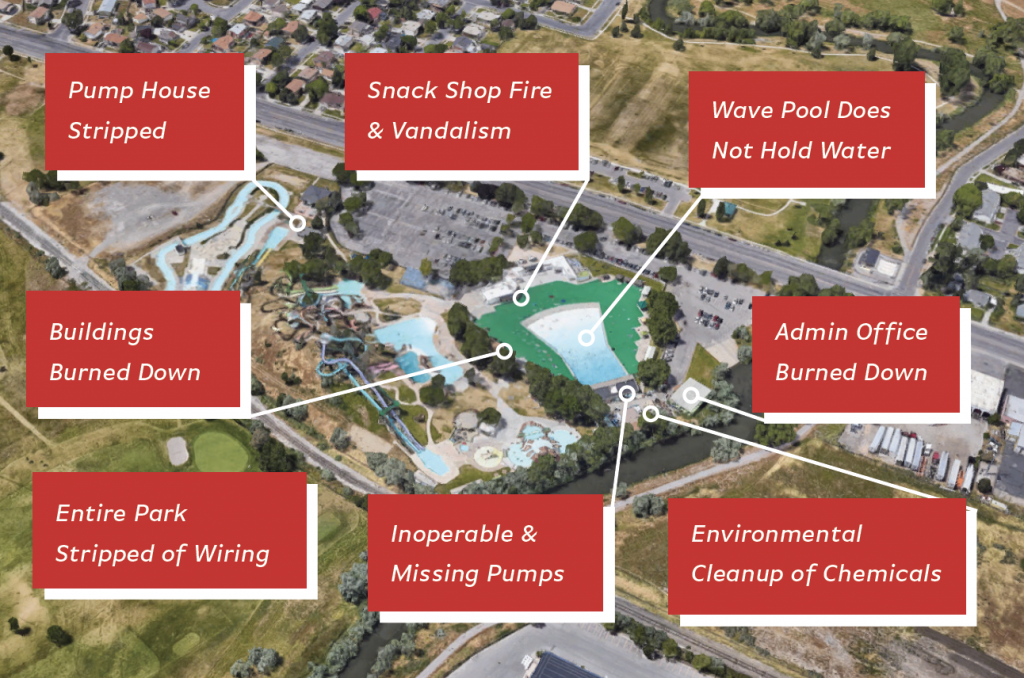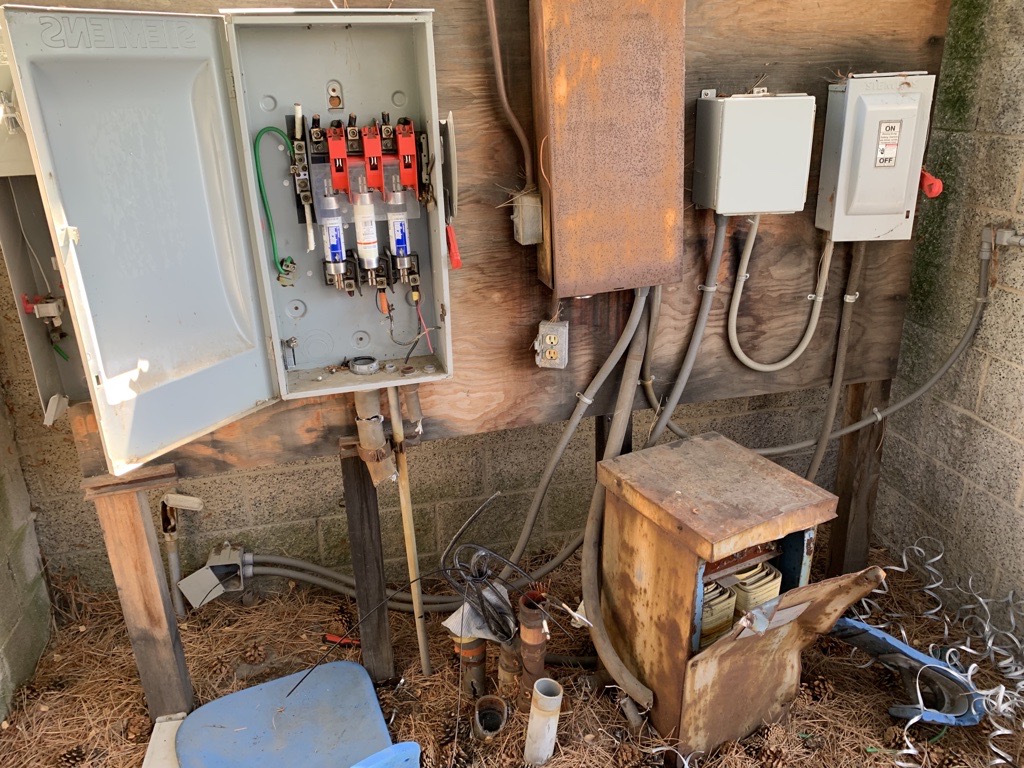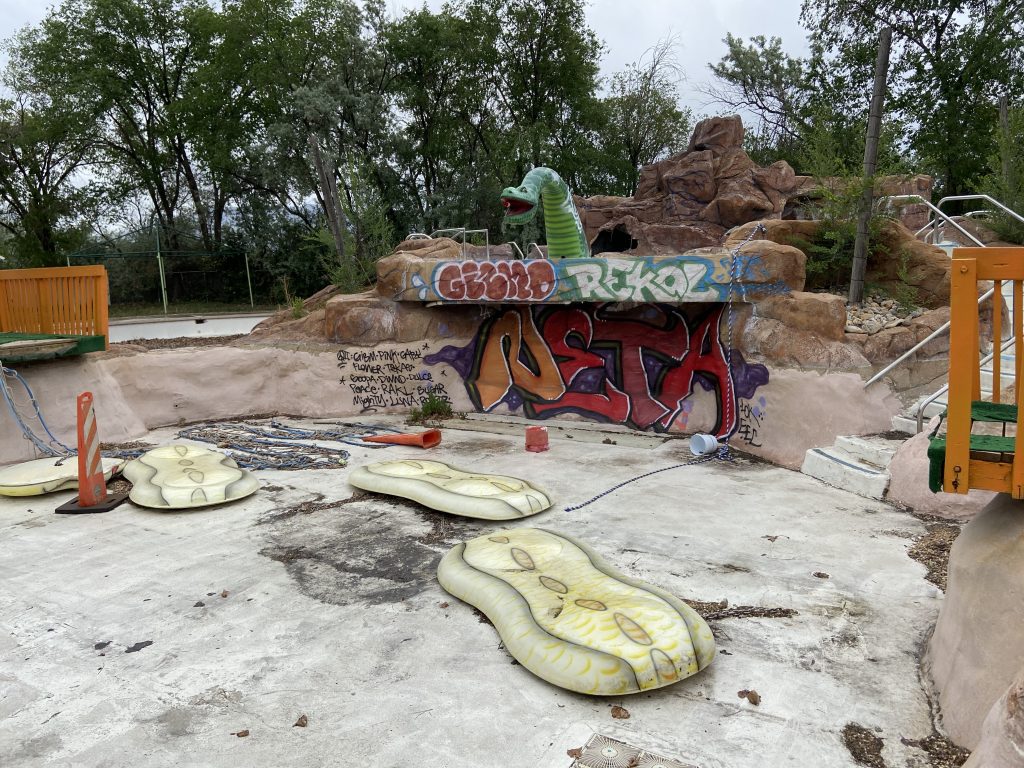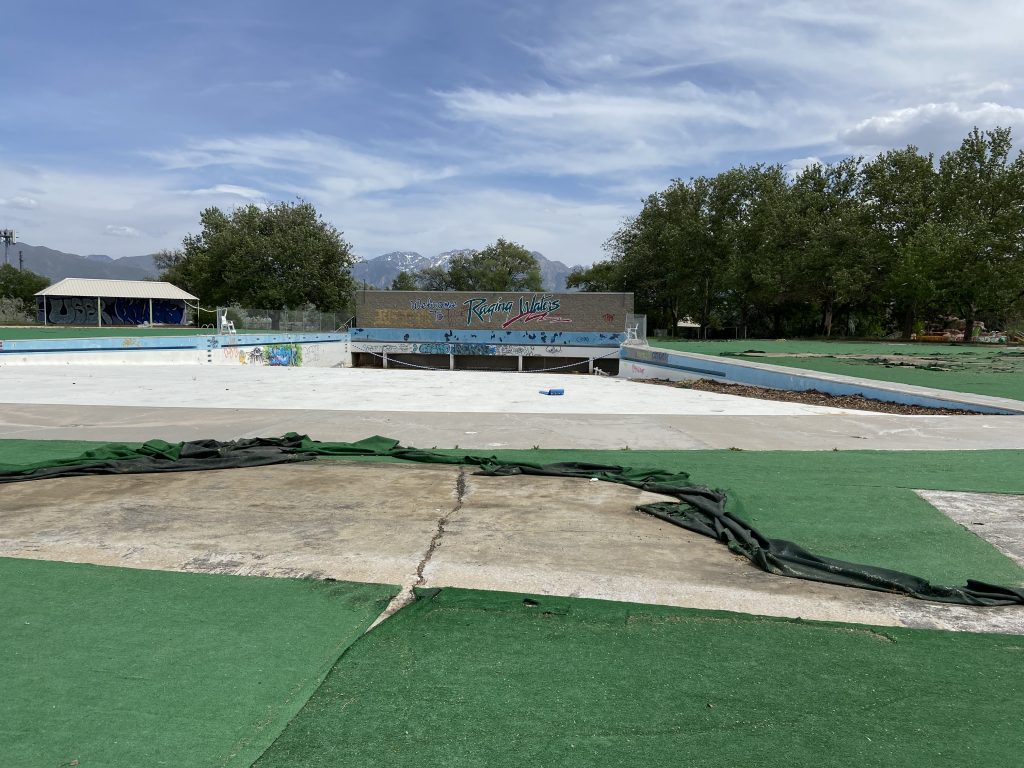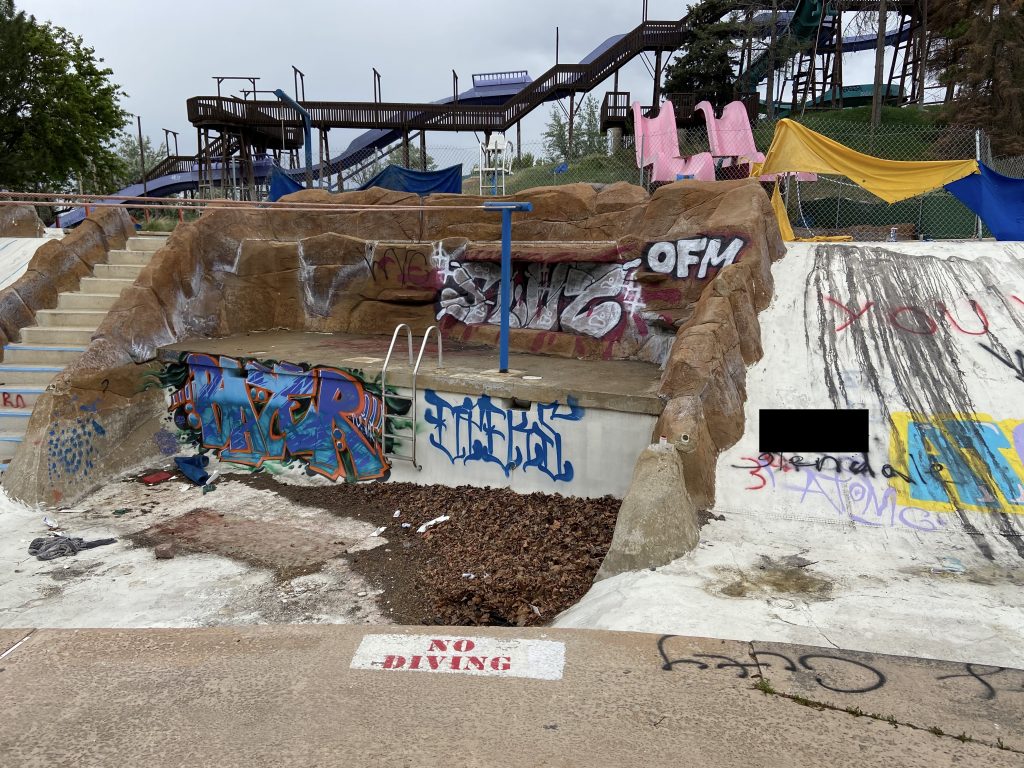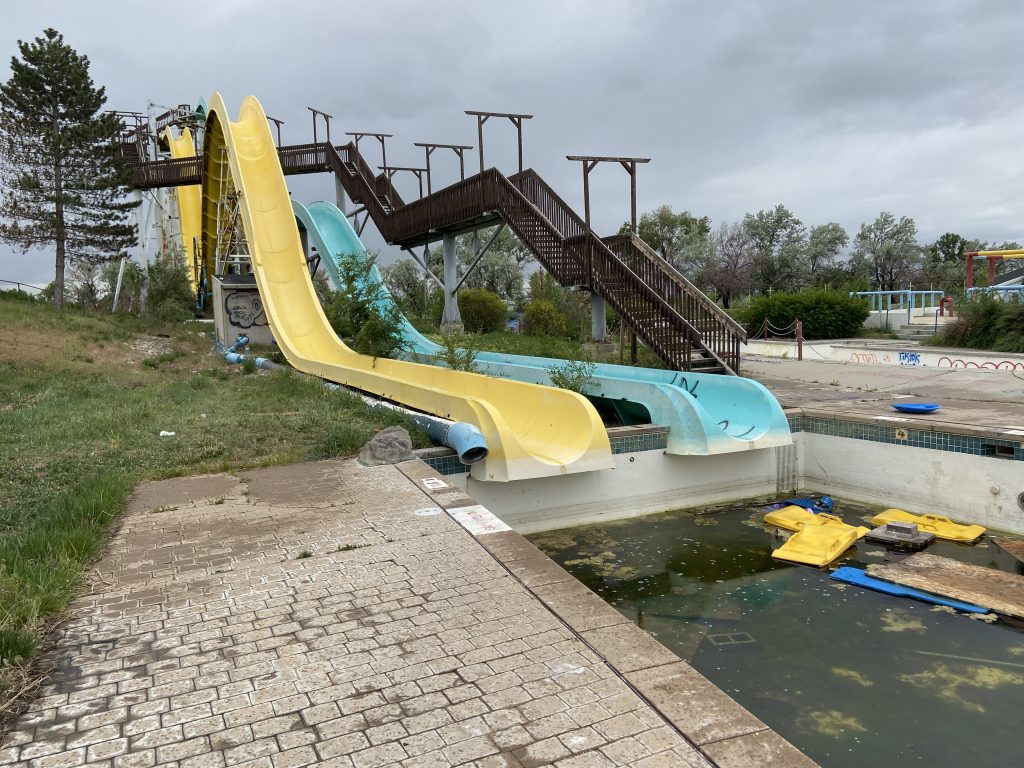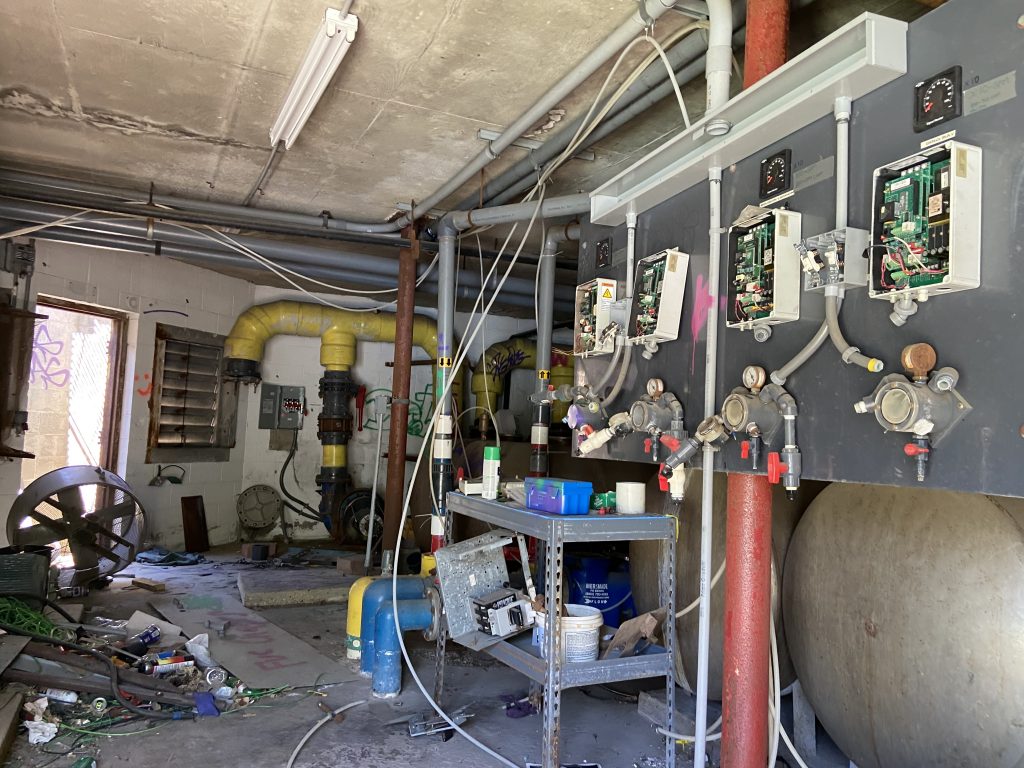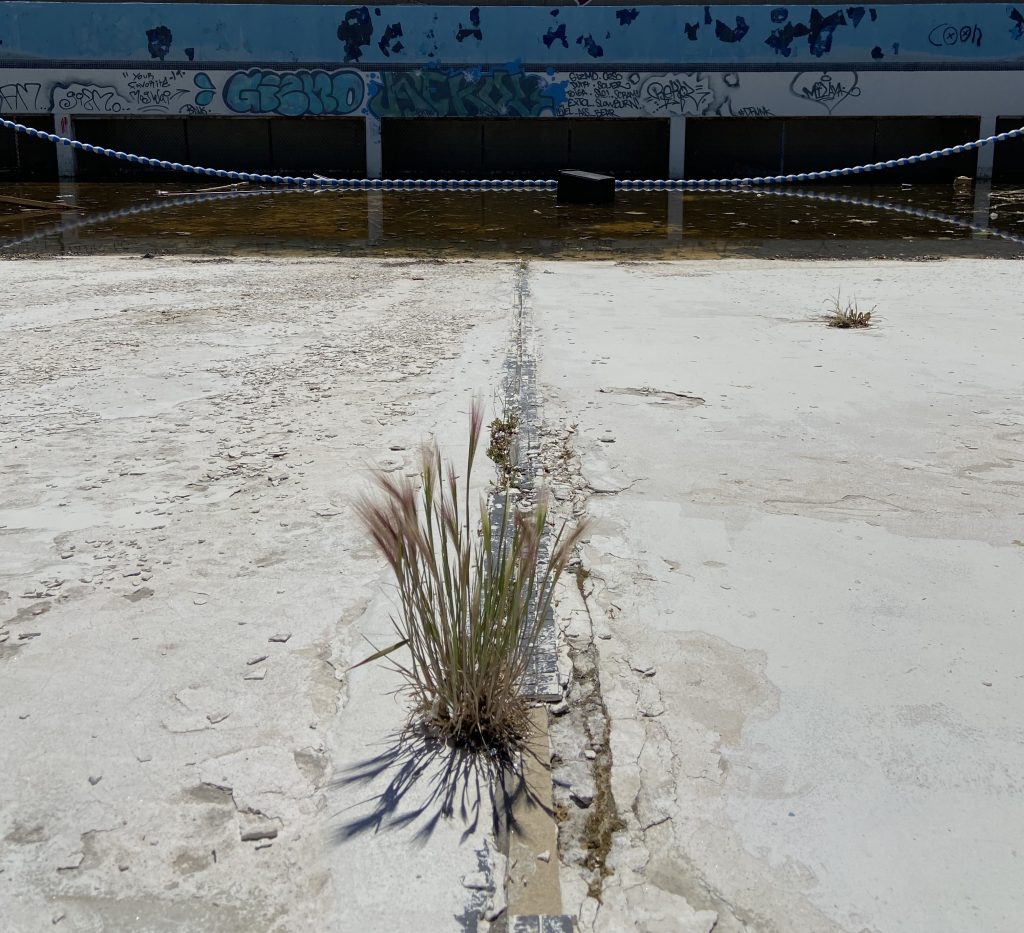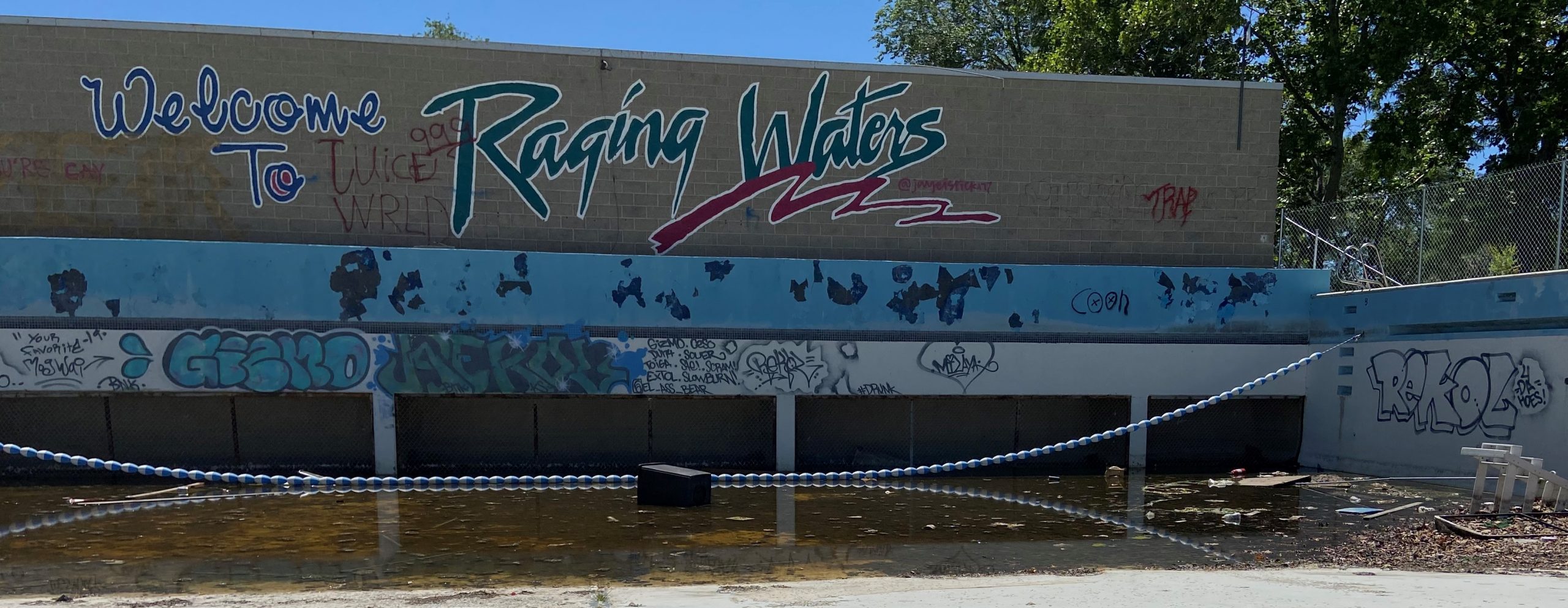
Vacant Water Park in Glendale
In the early 1980s, Salt Lake City was water park central for the Intermountain West. The “Wild Wave” was home to the world’s third wave pool and the place to be in the summertime. Fast forward almost forty years to 2020 and the 17-acre Glendale park—which has changed names to Raging Waters and later Seven Peaks—is in a state of serious disrepair. Closed since 2018, the pools leak, much of the equipment is broken and unsafe, or no longer meet engineering codes. Vandalism and operator abandonment have created additional problems, such as fires, stripped electrical wiring and equipment theft. The park’s condition leaves Salt Lake City wrestling with the difficult question of what to do next.
UPDATE JUNE 2021
The City’s Public Lands Department will take over this project after the disassembly of the water park to determine what will replace the waterpark on this property. Public Lands has been awarded $225,000 to create a Development Plan for the site with the help of a project consultant. It is anticipated that a consultant will be selected by June 5th, 2021. Visit www.slc.gov/parks/parks-division/glendale-waterpark for the most current information from The City’s Public Lands Department.
Estimates from water park experts have placed the costs of repairing and restoring the park to meet current standards at well over $20 million. The recommendation of City staff, is to disassemble what remains and make way for something new—with a cost projected to be between $500 and $600,000.
The survey is now closed
Key Issue Details
- This City owned property is approximately 17 acres and has historically been used as water park since the late 70’s.
- The Park was purchased with State of Utah Land and Water Conservation fund that restrict the property for use as open space which may be used for outdoor recreation.
- The property has not been opened or maintained by the current operator since 2018; this operator determined the water park cannot be restored for ongoing use.
- The structures and pools once used for a water park have fallen to vandalism and disrepair, including but not limited to:
- Burnt out structures used for operation and management
- All main pools cracked and leaking
- Slide support structures are rusted out
- Vandalized and stolen equipment used for operation
- The fenced in area has become extremely unsafe and trespassers continue to break into the property despite security efforts taken by the City to keep them out.
Water Park History
The Waterpark was developed in 1979 and was known as “Wild Wave” and was the third wave pool in the entire world, as such, it received a “Golden Fleece Award” and SLC became a waterpark destination in the Intermountain West
In 1983, A California Group came and took over operating the park and made a $3.5m investment to add waterslides and changed the name to “Raging Waters”. Incidentally, and more trivial, the berms where the Watersides are anchored were make from silt and sand that was left from the 1983 floods.
Seven Peaks took over operations sometime in the late 2000’s and changed the name to Seven Peaks to match the Provo brand. The waterpark was operated until the end of 2018 when their lease expired. The City chose not to renew because of several contract breaches and rent non-payment.
City posts a “For Lease Sign” during the spring of 2018 and Blue Island Group negotiates to become the next operator and signs a 10-year lease in April 2019. Terms of the lease included a substantial annual capital investment with City contributed rent discounts as a contribution to capital renewal needed. The operator anticipated spending $4 to 5 million dollars. Upon walking the park with “engineering consultants”, it was determined that all the pools were structurally failing and that massive amounts of water was leaking from the pools into the Jordan River. It was estimated by the operator that the pools needed to be completely renovated and the overall park overhauled to the tune of $20 –25M. Raising capital on the park becomes an extreme challenge. The City researched issuing an Industrial Revenue bond to the operator but there were two obstacles; 1) the waterpark use did not fall within the qualifying standards and 2) the funding bank would not be able to record a trust deed on the government-owned property.
August 2019, Blue Island goes into default as they failed to maintain the property and allowed the park to fall into disrepair.

